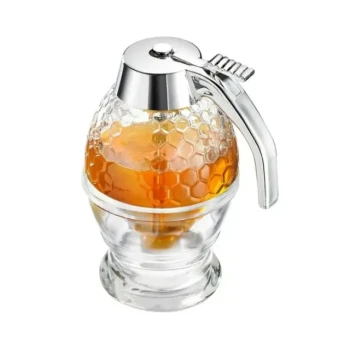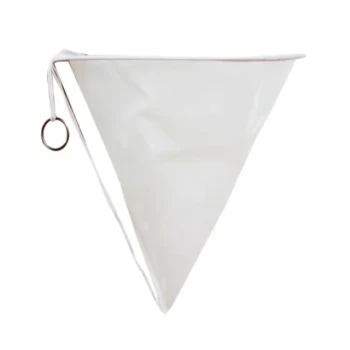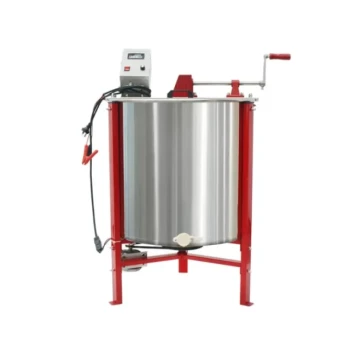The primary health benefits of raw honey stem from the valuable enzymes, antioxidants, and bee pollen that are preserved in its natural state. Commercial processing, which involves pasteurization and ultra-filtration, damages or removes these compounds, significantly diminishing the honey's therapeutic properties.
The core difference is a trade-off between preservation and potency. Processed honey is engineered for a long shelf life and uniform appearance, while raw honey is valued for retaining the natural, health-promoting compounds that are lost during that engineering process.

The Crucial Difference: Processing Methods
To understand the difference in health benefits, you must first understand the journey from the beehive to the shelf. The key distinction lies in the heat and filtering applied after extraction.
What Defines Raw Honey?
Raw honey is essentially honey as it exists in the honeycomb. It is typically strained to remove large debris like beeswax and dead bees but is not heated (pasteurized) or finely filtered.
This minimal processing ensures it retains its most valuable natural components: enzymes, antioxidants, and bee pollen. Its appearance is often cloudier and it crystallizes more quickly.
What Defines Processed Honey?
Processed honey undergoes two main steps that alter its composition. The first is pasteurization, a process of heating the honey to high temperatures to kill yeast and prevent fermentation.
The second is often ultra-filtration, which pushes the honey through microscopic filters to remove all fine particles, including bee pollen. This results in the clear, smooth, and uniform product commonly seen on supermarket shelves.
Key Health Benefits Lost During Processing
The industrial goal of a long shelf life and aesthetic consistency comes at a nutritional cost. The very compounds that offer unique health benefits are the first casualties of processing.
Diminished Antioxidant Content
Raw honey is rich in antioxidants, including phenols and flavonoids, which help protect your body from cell damage. The heat from pasteurization can degrade these sensitive compounds, reducing the honey's overall antioxidant power.
Destruction of Natural Enzymes
Honey contains natural enzymes, like diastase and invertase, which are introduced by bees. These enzymes contribute to digestion and are partly responsible for honey's antibacterial properties. Heat destroys these delicate enzymes.
Removal of Bee Pollen
Bee pollen, a source of vitamins, amino acids, and nutrients, is completely removed during ultra-filtration. Raw honey retains this pollen, which contributes to its immune-supporting benefits.
Weaker Antibacterial Properties
The antibacterial and antimicrobial effects of honey are one of its most studied benefits. These properties are stronger in raw honey because it retains its full concentration of natural enzymes and other beneficial substances that are diminished by heat and filtering.
Understanding the Trade-offs
Processed honey exists for practical, commercial reasons. Understanding these motivations helps clarify why the majority of honey on the market has been altered.
Why Process Honey at All?
The main drivers are shelf life and consumer expectation. Pasteurization prevents honey from fermenting and extends its usability for years. Ultra-filtration prevents crystallization, creating the clear, liquid texture many buyers associate with quality.
The "Downside" of Raw Honey
Raw honey's tendency to crystallize is often mistaken for spoilage. In reality, crystallization is a natural process and a sign of authentic, raw honey. The texture can simply be restored by gently warming the jar in water.
Making an Informed Choice for Your Goal
Your decision between raw and processed honey should be guided by your primary objective.
- If your primary focus is maximum health benefits: Choose raw, unfiltered honey to ensure you receive the full spectrum of enzymes, antioxidants, and pollen.
- If your primary focus is long-term storage and a consistently smooth texture: Processed honey offers convenience, though with significantly reduced nutritional value.
Ultimately, choosing raw honey is a decision to consume a food in its most natural and therapeutically potent form.
Summary Table:
| Health Component | Raw Honey | Processed Honey |
|---|---|---|
| Natural Enzymes | Preserved | Destroyed by heat |
| Antioxidants | High concentration | Diminished |
| Bee Pollen | Present and beneficial | Removed via filtration |
| Antibacterial Properties | Stronger | Weaker |
| Crystallization | Natural and expected | Prevented for shelf life |
Ready to experience the superior quality of raw honey?
As HONESTBEE, we supply premium beekeeping supplies and equipment to commercial apiaries and distributors. We help you produce the highest quality, nutrient-rich raw honey that retains its full health benefits. Let's discuss how our wholesale-focused operations can support your business.
Contact us today to learn more!
Visual Guide

Related Products
- Honeycomb Style Drip Free Honey Dispenser
- Premium Diamond-Faceted Glass Honey Dispenser
- Professional Wide Head Honey Uncapping Fork for Beekeeping
- Professional Durable Plastic Handle Honey Uncapping Fork
- Extra-Wide All-Stainless Steel Honey Uncapping Fork with T-Handle
People Also Ask
- What is a honey taking spoon called? Discover the Tool for a Perfect, Mess-Free Drizzle
- Why is a honey dipper considered more efficient than a spoon? Master the Art of the Perfect Drizzle
- How do industrial honey-filling machines add value to Apis cerana honey? Precision Packaging for Premium Profits
- Can we store honey in a stainless steel container? Yes, with the right food-grade choice.
- What are the benefits of squeeze bottles for honey packaging? Unlock Mess-Free Convenience & Control



















